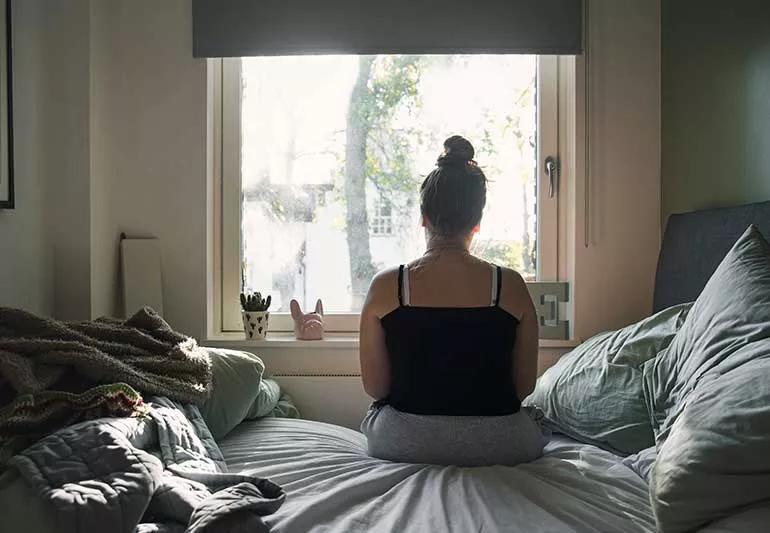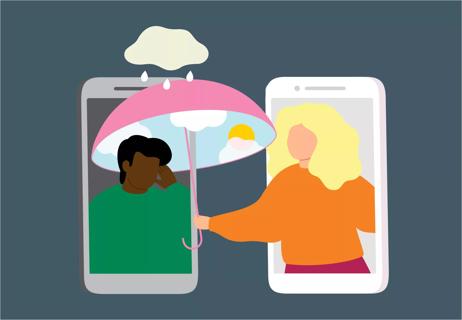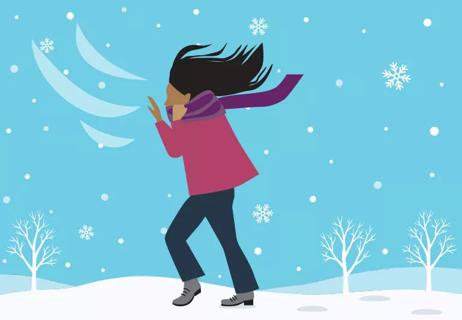If you experience warm weather seasonal depression, you’re not alone

The summertime is often associated with joy, freedom and a sense of ease. The birds are chirping, the sun is shining and everyone’s enjoying the great outdoors. But what happens when your mood doesn’t match your surroundings?
Advertisement
Cleveland Clinic is a non-profit academic medical center. Advertising on our site helps support our mission. We do not endorse non-Cleveland Clinic products or services. Policy
You’re not alone. Seasonal affective disorder (SAD) can, in fact, happen in the warmer months, not just during the gloomy winter.
Clinical psychologist Adam Borland, PsyD, explains why we sometimes get “sad” in the summer — and how to manage it.
In short, yes. Sometimes referred to as the “summertime blues,” this type of seasonal affective disorder often is triggered by the warmer months of the year, as opposed to cold weather.
First, a little refresher on SAD: This condition is a type of depression that’s specifically affected by seasonal changes. During the winter months, this is triggered by the shift into gloomy weather and dropping temperatures.
“We know that sunshine helps to regulate the serotonin level in our bodies and a decrease in serotonin during the winter months can result in lower mood,” explains Dr. Borland.
But wait — you’re probably feeling confused at this point. If the summer comes with more sunshine, shouldn’t we automatically feel upbeat and happy? Not always.
“It’s less prevalent than winter depression,” he notes. “But seasonal depression during the summer is linked to feelings of irritability and frustration. It can result in insomnia, lack of energy and motivation.”
Advertisement
In a lot of ways, some of the symptoms you’ll see from summer seasonal depression are actually the opposite of what you would experience in the winter.
For example, during the cold months, your SAD may cause you to have an increased appetite, while during the summer, you’ll lose your appetite.
Other symptoms of summer SAD include:
Especially if you start feeling these symptoms in the early summer or right around the time when the weather is shifting into higher temperatures, there’s a good chance they’re being triggered by the change in season.
As Dr. Borland points out about winter seasonal depression, this feeling could simply be a temporary bout of “summer blues” or it could be a recurring set of symptoms that come back every year. If you’re unsure about which one it is, reach out to a healthcare provider or mental health professional.
According to the National Institute of Mental Health (NIMH), winter seasonal affective disorder is more common and there’s still a good amount of research left to be done on summer seasonal affective disorder. But here’s what we know so far.
“It’s due to a combination of physiological and environmental issues,” states Dr. Borland.
Here are some reasons as to why we think that summer seasonal depression happens:
If you’ve ever been stuck in your house with no air conditioning, you know how fast your mood can shift. Just like the extreme cold can have a negative effect on your mood and cause seasonal depression, so can the extreme heat.
In general, our bodies may respond negatively due to the heat and humidity, leading to feeling fatigued and exhausted. Suddenly, things like going on a walk or running errands may take more energy out of you when it’s 80+ degrees outside.
Another possible trigger for summer seasonal affective disorder is the swift change in routine that may happen in the warmer months. While the summer can bring forth a lot of freedom and the possibility for different activities, this can also bring on stress.
The first routine change is due to the length of days: As the sun goes down later, it can cause you to go to bed later than usual. This can sometimes throw your whole daily routine out of whack and lead to feelings of being overwhelmed and tired.
In addition, the summer comes with changes in school and work routines. For example, if you’re a parent and your kids are out for the summer, now you’re trying to balance working and taking care of kids. “That can affect mood and stress and anxiety for some people,” acknowledges Dr. Borland.
Advertisement
“There might also be a sense of pressure to feel happier because it’s summer,” Dr. Borland continues.
Cue the FOMO (fear of missing out). Sometimes, seeing everyone else having fun through social media can make you feel negative about not doing “enough” to enjoy the summer.
This can lead to social anxiety and then feeling anxious about your social anxiety.
“Some people also express anxiety about actual physical appearance and, therefore, are avoidant of certain activities,” he adds.
If you live with seasonal allergies, you know that this time of year can have its rough patches. Dr. Borland says that warmer months coincide with a higher rate of pollen — which can make your allergies worse, among other things.
“Because the pollen increases during the warmer months, it may lead to inflammation in our bodies, which has been linked to depression,” he explains.
There’s some research being done on who’s more likely to experience seasonal affective disorder in the summer. Some research has explored the possibility that people living closer to the equator may experience summer SAD more than people living in cooler areas.
Generally speaking, SAD affects women more often than men, though researchers aren’t sure why. It’s also more common in young adults and in people who have another mood disorder, such as depressive disorder or bipolar disorder.
Advertisement
Overall, Dr. Borland says it’s important to keep your healthcare provider up to date about your symptoms and any past health issues you’ve had or are currently living with.
In the meantime, if you live with seasonal affective disorder in the summer or are just experiencing some summertime blues, here are some tips on how to help manage your symptoms:
From the moment you get up from bed, to when your head hits the pillow, your routine impacts you a lot. And oftentimes, during the summertime, these routines get flipped upside down. Dr. Borland highly recommends trying to keep a consistent routine as best as you can. Your day-to-day may vary a bit in terms of activities, vacations or other summer projects, but try to keep certain things predictable, such as your morning and bedtime routine.
Especially with how busy the summertime can be, it can be hard to stop and reflect on what we’re feeling. Dr. Borland suggests jotting down your feelings and giving yourself time to be aware of any symptoms or changes in the mood you’re starting to feel during the summertime. This can be a good mindfulness practice, as well help wash away any anxiety or feeling of being overwhelmed that may be triggered during the summertime.
Advertisement
Yes, sunshine can give you a boost of happiness — but too much of it can do the opposite. It’s all about keeping a balance. Especially if temperatures are high and humid, Dr. Borland recommends avoiding being outside for too long. Get to know your threshold so that when you start to feel yourself becoming irritable, tired or annoyed while out in the heat, you can respond quickly — and set limits for yourself.
There may come a point when you start to realize that a poor summer mood may be a sign of something more serious.
While it can be hard to pinpoint, Dr. Borland says it’s important to be honest with yourself and ask the question:Are you recognizing a significant change in your mood or your anxiety level?
This means, taking into account if your “summer blues” are starting to affect your day-to-day functioning related to your work, family or personal relationships. If you’re starting to feel your depression get worse or go on for longer than usual, talk to a healthcare provider who can help you coordinate the right treatment options.
“I think it’s also important for people to realize that it’s not a weakness to pursue treatment options,” reassures Dr. Borland.
Learn more about our editorial process.
Advertisement

Major life events and trying times can trigger reactive depression symptoms, like prolonged sadness, irritability and hopelessness

Sitting near a light box for about half an hour a day can help treat this form of fall/winter depression

Light therapy can boost sleep and help fight depression

People with high-functioning depression may not seem depressed on the outside, but the condition can cause turmoil on the inside

More than just ‘deep sadness,’ this complex condition is often a whole-body experience

Learning your warning signs can help push back against an episode of depression

Cozying up with friends and family can make cold, dark days more meaningful

An expert explains how seasonal weather changes affect our health

Wearing a scarf, adjusting your outdoor activities and following your asthma treatment plan can help limit breathing problems

Your diet in the weeks, days and hours ahead of your race can power you to the finish line

When someone guilt trips you, they’re using emotionally manipulative behavior to try to get you to act a certain way